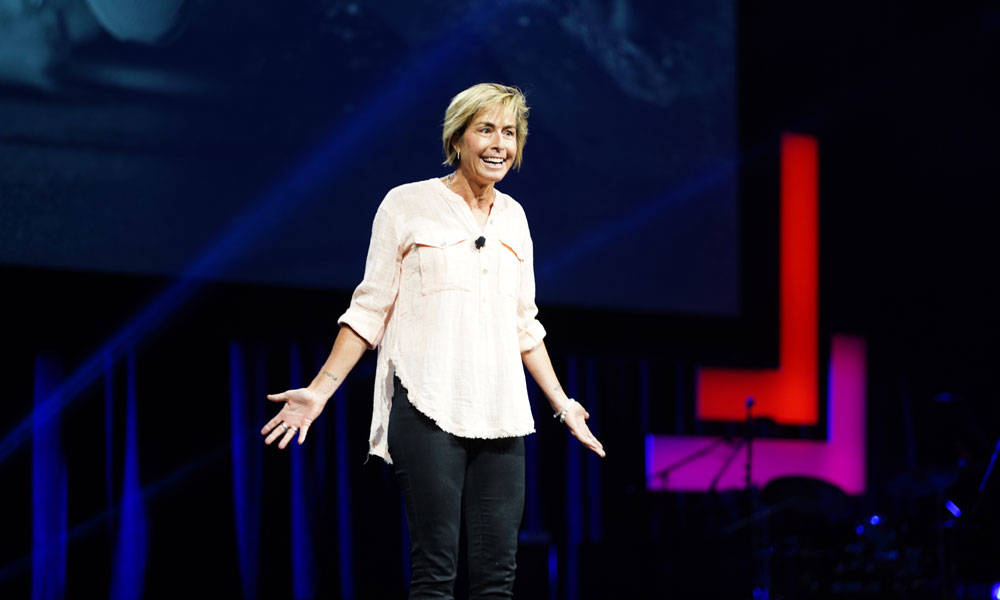
#ASAE18: Practice “Fearless Authenticity,” Says Triathlete Siri Lindley
The former world champion—today a high-performance coach, author, and motivational speaker—encouraged attendees to take ownership of their vulnerabilities and confidently share them with those they lead.
Failure can be a powerful driver for change and improvement, says world champion triathlete Siri Lindley. That is, so long as we can get past the fear of it.
During her Closing Keynote at the 2018 ASAE Annual Meeting & Exposition in Chicago Tuesday afternoon, Lindley spoke candidly—and often with self-deprecating humor—about her path from starting to train for triathlons while hardly knowing how to swim to becoming one of the sport’s leading athletes and an in-demand coach. She described being a college student who was successful at academics and athletics but lacked a driving force in her life.
“On the outside it looked like I absolutely had it made,” she said. “But on the inside I was slowly dying.”
Find the gift in the struggle.
Coming out as gay—and confronting rejection from her father because of that—left her feeling even more isolated, she said. But not long after, as she watched a friend participate in a triathlon, she felt “absolutely taken aback and amazed,” she recalled. “They were digging deeper than they ever had before. What a perfect way to find me.”
Her own first try at a triathlon was disastrous. She finished toward the rear of the pack, gasping and wheezing to the finish line, and mortified to the point of sobbing that evening as the day’s embarrassments came back to haunt her. But she said the experience drove her to keep pushing.
“I had a massive reason why,” she said. “I absolutely had to make this dream come true. I had to prove to myself that I’m worthy of taking on something that scares me.”
She encouraged attendees to draw similar motivation from their own experiences and to think of their failures as opportunities to learn lessons about how to do better. (Many association executives, though, might be a tad resistant to Lindley’s personal plan of attack, which involved brutal daily training in Switzerland with a rigorous, tough-love trainer and a hypercompetitive relationship with her fellow athletes.)
In her own coaching, Lindley said she works to be as open as possible with athletes about her struggles, which helps to create a rapport and sense that failures and disappointments are just a part of learning.
“I decided that I’m going to talk about the things that scared me,” she said. “When I share that the things I was most ashamed of have been my greatest strengths, they dig so much deeper, because they too can be vulnerable.”
Lindley described that practice as “fearless authenticity” and said our capacity to improve is linked to our capacity to be candid with ourselves about our shortcomings. “Find the gift in the struggle,” she said. “You will get through change and disruption with so much more faith and grace and confidence.”
(Nick Hagen)






Comments